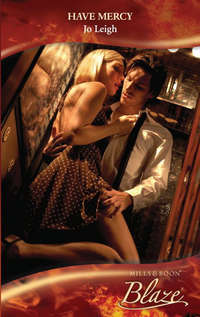
Полная версия
Confessions Bundle
A habit his father had taught him very early in life. A man who drinks alone at work has a problem with drinking.
“Whatever you’ve got.”
Pouring a couple of shots of twelve-year-old scotch, Blake handed one to the older man and took a healthy sip of his own. If Schuster was here to tell him they were going to lose, he was going to need more than one.
“When you were in court, answering Juliet McNeil’s questions, you testified that you were in the Cayman Islands five years ago.”
“I was. On and off. I was working on a project in Honduras and used to fly over for a week every now and then. Why?”
“Did you ever do any business there?”
Something in Schuster’s voice, his low-key demeanor, set Blake on edge. Putting his glass on the coffee table, he took a seat across from the prosecutor.
“Never.” Where the hell was this going?
“What did you do there?”
“Lay on the beach. Kayaked. Snorkeled. Ate. Made love with my wife.”
Schuster’s gaze was guarded as he looked up. “Where did you stay?”
“Various places, hotels, a bed-and-breakfast. Once we even camped on the beach. Why? What does any of this have to do with James’s testimony?”
Was the man trying to claim that Blake had something to do with the Eaton Estates deal, other than checking to see if it was legitimate at the request of his mother?
“James launched a bombshell in the courtroom today. I’d bet my career on the fact that no one was as surprised as his counsel.”
Chills slid through Blake. Ignoring the drink he’d left on the table, he watched as the other man swirled his whiskey. Drained the glass. Set it down.
“He claims there’s a bank account in the Cayman Islands that holds every dime of all monies unaccounted for in his books. Those paid invoices for shipments that never seemed to happen? Well, that money was being squirreled away in some bank in the Cayman Islands.”
“He admitted it,” Blake said, elated and sickened at the same time. “We won.” And then, observing the other man’s bowed head, he added, “You won.”
“Not so fast.” Schuster shook his head, looking old and tired in a jacket wrinkled from hours of sitting in court. The energy that seemed to pulse through him twenty-four hours a day was eerily absent.
“James didn’t admit to anything but being blackmailed.”
Frowning, Blake sat back, a curious numbness spreading through him. “What? By whom?”
“Your father.”
CHAPTER SEVEN
SITTING BACK with his arms resting on the sides of his chair, Blake hoped he looked relaxed. He was working hard to maintain the facade.
“My father.” They were the only two words spinning around in his mind. There should be more. Would be more. He knew that. For now, focusing on remaining calm was keeping him detached.
Or a sense of survival was.
Schuster, forearms on his knees as he leaned forward, nodded. His hands were clasped as though he didn’t quite know what to do with them.
“My father had no reason to blackmail Eaton James.”
The man’s pockmarked face thinned as he continued to watch Blake. “Apparently he did.”
No, he didn’t. James was a liar, on trial for fraud. “Why?” If Blake was going to clear his father’s name, he had to have the facts.
“After James claimed that he lost the money your father had invested with him, your father hired a private audit firm to inspect James’s books. His right to do so was in the contract he’d had his lawyers write up at the time of the investment.”
Blake recognized his father’s hand in that. Walter Ramsden had been at times almost maniacal in his need for control.
He’d been equally so in walking the straight and narrow.
“The firm found everything in order, according to the document James received. Your father, allegedly, was not satisfied with the record.”
None of which seemed at all unusual to Blake.
“According to James, your father threatened to call someone he knew at the IRS unless James turned over his records to him, so that he could see for himself what was and wasn’t there, with the understanding that if he found anything that even hinted at tampering, he’d call the IRS anyway.”
With a hand to his chin, Blake nodded. Sitting still was excruciating. Almost as painful as listening to what should be a fantastic story, but was, in fact, quite believable, about his deceased father. He could too easily see Walter Ramsden giving James a fair chance to prove himself before turning him in, and then considering himself judge and jury of that proof. After all, Walter Ramsden firmly believed that he always knew what was best.
The damnable thing was, he pretty much always had.
Except, of course, in his decision to invest with Eaton James.
“Threatening to call the IRS on a firm whose bad investment has just lost you a huge chunk of money is hardly a crime, and nowhere near the vicinity of blackmail.”
Unless someone like Juliet McNeil, who colored the truth to match any decor, was painting the picture?
Running a hand through his graying hair, Schuster picked up his glass. “Mind if I have another?”
“Help yourself.” Blake motioned to the bar. He should get up and do it, and get one for himself, as well. Except that he hadn’t finished the one he had.
The back of the man’s slacks looked as though he’d slept in them more than once. Apparently sometime during the afternoon, the prosecutor—whose attention to his appearance was normally obsessive enough to be noticeable—had lost track of the crease in his pants.
With a glass that was twice as full as the one Blake had poured originally, Schuster took his seat.
“James testified that after your father looked over his books, Walter claimed the legitimate start-up companies under Terracotta’s umbrella were fraudulent. Apparently a couple of the new ventures had well-known San Diego businessmen at the helm as the principal signers. Because the auditors knew the reputations of the businessmen in question, they didn’t audit their books, but rather accepted as fact the invoices and receipts going to and coming from them.”
Just like the well-known national firm that had been in the news at least twice in the past two years. Blake frowned. “My father thought the companies were nonexistent fronts to hide Terracotta Foundation losses or gains.”
“Apparently.”
“And these principal signers, how would James have convinced them to act as principals for businesses that were not legitimate?”
“McNeil asked James that very question,” Schuster said, shaking his head. “I swear, the woman had no idea what her client had up his sleeve, but she sure rolled with the punches.”
Blake couldn’t tell if the older man was repulsed, or reluctantly in awe. He suspected a combination of both.
“And what was James’s reply?”
“That your father was obsessed and, he suspected, not quite as mentally alert as he’d once been…”
Blake burned. His old man had had many faults, but a lack of mental sharpness had not been one of them. That was something his mother absolutely would have told him about.
“He said that your father found the fact that all of the principals held seats on the Semaphor board suspect. He accused James of playing on the trust of his philanthropic associates—”
“Something my father had fallen prey to.”
“Exactly.”
Sitting forward, Blake picked up his glass. Sipped slowly. This wasn’t sounding so bad, after all.
“If my father had been wrong, if the companies weren’t fraudulent, what did James have to be afraid of? I think that the fact that the state found the same evidence is pretty telling, don’t you?”
Schuster swirled the liquid in his glass, took a drink, then frowned at Blake. “Not so fast,” he said, his eyes deadly serious. “In the first place, if your father didn’t have something on James, the blackmail attempt would not have been successful.”
He’d actually forgotten, for a moment, that that was where they were headed. James’s ridiculous attempt to buy his freedom.
“And secondly, your father is the one who turned evidence over to the state.”
Goddammit. He hadn’t been told that.
So Schuster’s entire case was hinging on the validity of his father’s claims?
“Obviously you found ample evidence to corroborate the charges.” The case would never have grown to this magnitude, would never have attracted attorneys like Schuster and Juliet McNeil, if there wasn’t substantial proof.
Schuster sighed, dropped his head. “Much of the paper trail I’ve spent the past five years unwinding was created at the direction of your father. In a private meeting, of which no one knows, he told me where to look. And what I’d find.”
“And he was right.”
“Of course he was right, or we wouldn’t be here,” Schuster said impatiently, looking up. “James maintains that your father planted the evidence.”
Glass in hand, Blake sat back. Hard. The moment had gone from incredible to absurd.
“If my father turned everything over to you, what did he supposedly have to use to blackmail James?”
“I met with your father just days before he died. Twenty-four hours after James had met with him, giving him a particular piece of information that he believed would not only get him out from underneath your father’s control, but would turn the tables on him. He had information with which he could blackmail your father, instead.”
“He admitted to blackmailing my father?”
Schuster shook his head. “No, he claims he only used the information to get your father to leave him alone. He had no intention of doing anything illegal.”
Taking another sip of whiskey, although he knew he needed his mind completely clear, Blake set the glass down.
“But he claims that, until he came up with whatever hold he had on my father, my father used the evidence of fraudulent companies to blackmail him.”
“Yes.”
“So again, I ask, if there was nothing fraudulent in those books, why give in to blackmail?”
Not that he believed, for one second, there’d ever been any blackmail. Blake might have gone three years without speaking with his father, but there were some things he just knew.
“James had made some very stupid mistakes. Namely some bad investments—not unlike the Eaton Estates deal—that, had they become known, would have lost the Terracotta Foundation all of its investors. Think of it, a nonprofit organization losing money instead of gaining it to benefit third world countries. He’d made other investments that were keeping him afloat, but who’s going to give money to a man they can’t trust? He’d have been bankrupt with no possible way of recouping his losses, his reputation ruined.”
“So why didn’t the original audit of Terracotta show those losses?”
“Because James started up a couple of other small companies that he used to hide the losses.”
“The companies my father questioned.”
“Correct.”
“So were they legitimate, or weren’t they?”
Shrugging, Schuster finished off his whiskey. “That’s the six-million-dollar question that only the jury will be able to decide at this point. The companies themselves exist, such as they are. It’s a matter of having a license. It’s all paper. What James is guilty of, which your father discovered, is that he forged the names of the principals for both of the companies in question.”
“Forged the names of men on the Semaphor board?”
Schuster nodded. “Reputable businessmen, both of them. He’d gambled on the fact that, were he to be audited, the firm would take the names at face value and not look at those books. A chance that paid off.” The prosecutor dropped his head a second time.
“Chances are I’m going to lose this one because I went for a charge of fraudulent schemes and the man is guilty of forgery,” he said. “I haven’t done a forgery case since my first year out of law school.”
He might lose a case. But what about justice?
“If this is true—” which Blake was certain it was not “—why wouldn’t James have come clean with his attorney from the beginning?”
“Who knows?” Schuster said, standing to pour himself another drink. Blake was going to have to call the man a cab. “McNeil has one hell of a reputation. Maybe he was hoping she’d get him off altogether. Save his reputation, his business, his lifestyle. And when he got scared, he figured facing the much lesser charge of forgery was better than spending the next fourteen years in jail. Ego and fear. Two of the three things that most often get a man.”
“And the third is?” Blake didn’t give a damn. He was stalling. Avoiding the rest of what Schuster had to tell him.
“Sex,” the man said, his lips pursed with disgust.
“So what motivation did James give for my father blackmailing him? How did he explain the fact that Walter Ramsden, a man everyone in the business community knows to be honest to the point of self-righteousness, didn’t go immediately to the authorities with the things he’d found?”
The prosecutor’s eyes were surprisingly clear as he stared at Blake. “You.”
“What?” He hadn’t meant to raise his voice.
“You hadn’t seen your father in four years, Blake. That’s a long time when a man is in his seventies. Especially a man who is suffering from a bad heart. A lack of physical strength had taken its toll. Apparently Ramsden Enterprises wasn’t doing as well as it once had.”
“Nothing that couldn’t easily be fixed.” Blake tried to keep defensiveness and emotions out of his reply. He couldn’t afford clouded judgment at this moment. “As with any company in today’s market, we needed to diversify. To expand. The day of small family concerns had passed.”
“Expansion takes time. Planning. And more energy than your father had. He needed the money to stay afloat until you came home.”
Standing, Blake grabbed his glass from the table and took it to the small built-in dishwasher at the bar. “Well, there you go then,” he said, his back to Schuster. “That will be easy enough to prove. Just look at our books. I did, thoroughly, when I came home. True to form, my father left not one dime unaccounted for—either incoming or outgoing. There was absolutely no influx of money other than what was invoiced and signed off with double signatures.”
“You actually think your father would have put the money someplace it could be found? Tracked?”
“No.” Blake turned. “I don’t. Because my father would never have taken the money to begin with.”
“According to Eaton James, he put it in an account in the Cayman Islands.”
Blake’s eyes narrowed. “How convenient. James mentions a place that’s well known in the business world for its ability to hide money as though it didn’t exist. Without the Cayman Islands’ cooperation, he knows there’s no real way to prove his claim one way or the other. And he’d also know that the government is known for its blindness to such matters.”
Schuster’s eyes were narrowed, too, although he remained seated. “He has a bank account number. That was the information he presented to your father just before Walter came to me.”
There was more. Blake felt it coming. With both hands bracing his weight behind him, he leaned back against the counter. “You’re going to tell me the account has my father’s name on it.”
“No.” Schuster surprised him. “According to James, it has yours.”
“’NIGHT, MOM.”
“Good night, imp. Sleep well.” Leaning over, Juliet kissed her daughter’s cheek, pulling the covers up to Mary Jane’s chin. No matter how hot the weather, she wouldn’t sleep without being completely covered, at least by a sheet.
She forced herself to stand in the doorway until the child opened her eyes for one last blown kiss, a ritual they’d started when Mary Jane was a toddler. Never had bedtime taken so long.
More often than not, she let Mary Jane talk her into staying up past her bedtime. Mary Jane didn’t seem to require as much sleep as most children. A characteristic of precocious children, her pediatrician had said when, at two, the little girl had played happily in her crib all through naptime.
She gave her daughter another fifteen minutes to settle into sleep before she could no longer stand the tension and called her twin. From a cell phone, sitting in her bedroom with the door closed, just in case Mary Jane got up.
“He’s a criminal, Marce!” she blurted as soon as her sister picked up.
“Who’s a criminal?”
She could hear voices in the background. The television. Again.
“Blake Ramsden.” The father of her child. “What kind of defense attorney am I that I didn’t even suspect?” The thoughts that had been torturing her all evening came tumbling out in no apparent order. “What kind of mother? I’ve been working on this case for months and not once did I have even an inkling that the road to Eaton’s freedom was paved by Ramsden Enterprises. It’s like I was blinded by a nine-year-old memory that might have cost a man several years of his life.”
“So what bothers you more, Jules?” Marcie’s voice was soft yet tough. “Your ego, because you might not be as infallible on the job as you think? Or your heart, because you might have made a bad choice for the father of your child?”
“I didn’t choose the father of my child. The child chose me.”
“You used the same condom twice!”
“I was drunk!”
Marcie didn’t say another word. It was a silence that drove Juliet insane every single time her sister used it on her.
“Why are you doing this?” Juliet whispered a full thirty seconds later. “You’ve never said anything like this before.”
“It didn’t matter before. He had a life in another world.”
A laugh track exploded in the background.
“You think I got pregnant on purpose?” Because if Marcie thought she’d ever consider something as cold-blooded as that—to go out looking for a man for the express purpose of having his kid—then her sister didn’t know her at all.
“I don’t think you consciously chose the course.” Marcie’s reply came quickly. “But I’ve always suspected that somewhere, in the back of your mind, the thought was there.”
Juliet leaned her head against the wall, legs straight out, and studied the subtle texture of her nylons. She really shouldn’t be sitting on the floor in her suit.
“You need family, Jules,” Marcie said slowly. “We both do. And there was no way you could possibly contemplate marriage—not until you’d proven to yourself that you had a full life on your own.”
“I made it through law school by the time I was twenty-five. I had a life.” The carpet was making her legs itch.
Marcie nodded. “You had the beginning of a life. But not enough of one to take away your fear. I’ve wondered if maybe part of you needed to know that even if you were in Mother’s position—pregnant and alone—you had what it took to make it. You couldn’t live with the fear of thinking you might not be able to handle it,” Marcie was saying. “You were afraid of finding out that if it ever happened to you, you’d do exactly what Mom did.” She was going to hang up now. “I don’t think you got pregnant on purpose, no.” Marcie’s words went a little way toward calming the panic in Juliet’s heart. “But I don’t think it was completely a mistake that you didn’t insist on a new condom the second time around. We make little subconscious choices all the time and then act on them without even knowing that’s what we’re doing.”
It was Juliet’s turn to use the silent treatment. Mostly because she was speechless.
“You know,” Marcie continued, “like when you pull into the parking lot of an ice-cream shop without even realizing that you were hungry for ice cream.”
“I hardly think craving a hot-fudge sundae can be in any way likened to having a baby.” She pulled off her pumps, one by one.
“The brain’s ability to see to the needs of the subconscious can be the same in both cases.”
None of this was making sense. And it wasn’t anything she’d needed, or expected, when she’d dialed her twin’s number. “Is Hank there?”
“No.” Of course not. It was Thursday and Hank worked late at the hardware store on Thursdays doing inventory.
With one hand, and leaning from side to side where she sat, Juliet pulled off her panty hose, wadded them and tossed them in the wire-framed designer laundry basket in a corner of the closet.
“So you’re accusing me of going out that night with some thought in the back of my mind that it was time to get pregnant?”
“No! Of course not, Jules.” Marcie’s voice gentled. “I know you better than that. I’m only saying that when the proper circumstances presented themselves, you acted on them. You were with a man who attracted you. He was intelligent and confident enough to argue with you, he was gorgeous, he was from a stable family well known for honest dealings, and—the crèmede la crème—he was leaving the country for an indefinite period of time! There’d be no one to get in touch with, to answer questions from, to avoid, or to call. No one to turn to in case you got cold feet about going it alone.”
“You actually think I thought all that through?”
“No. But I think the sense of freedom spoke to you.” Juliet’s heart sank when it became obvious that Marcie wasn’t going to budge on this one. Usually when that happened she was at least partially correct.
The laugh track sounded again.
Except for her insistence on staying in Maple Grove.
Juliet started unfastening the buttons on her blouse. “Can I have some time to think about this?”
“In other words, you want me to shut up and never mention it again?”
“Yeah.”
“Only if you promise to…no, forget that. Yeah, I’ll let it go.”
“Only if I promise to what?”
“Nothing.”
“What?” Her blouse hung half-open.
“I was just going to say that I promise to leave this alone if you’d quit worrying about Hank and Maple Grove.”
That wasn’t fair. Marcie’s happiness was at stake. “I—”
“Don’t say it,” Marcie interrupted. “You don’t need to. I know you can’t stop.”
“I just—”
“I know, Jules,” she said, her voice low. “Truth is, I’m not even sure I want you to stop.”
Juliet froze, afraid to hope. “You mean it, Marce? You’re actually thinking about moving here?” Her heart rate sped up as she ran through the possibilities.
“Not really,” Marcie’s reply wasn’t as disappointing as it might have seemed. It wasn’t the adamant no that was all she’d ever issued in the past. “I just don’t want you to quit asking. It’s good to know I have a place to go.”
“Always, sis.”
“Yeah. Still, it’s good to hear, you know?”
Juliet did know. After losing everything they had to go live in squalor in a trailer the size of one of their bedrooms at home, security had gained a pretty high spot on the priority list of both girls. Right beneath the need to provide it for themselves.
In the space of a weekend, she and Marce had gone from living in a San Francisco mansion with every possible luxury and socially prominent parents to a rusty, skinny, two-bedroom trailer in Maple Grove with a broken woman who had no training, no marketable skills and not enough esteem to pull herself up. They’d left behind the man who’d lost his fortune and found himself a rich woman who was happy to keep him in the style to which he’d grown accustomed in exchange for his company. The man who’d come home one Friday afternoon to bid a cold adieu to the wife he’d grown to hate and to the children he’d never wanted and didn’t intend to see again.
Juliet could still remember the moment when, thinking that she could solve everything by wrapping her skinny arms around the man she’d adored and telling him that she’d help him get his money back, her father had shoved her away so hard she’d landed on her butt on the ground.
“You going to tell me what kind of criminal Mary Jane’s father is?” Marcie asked when the line hung silent.
“He’s been harboring illegally gained money in a bank account in the Cayman Islands.”
“No way.”
“I know,” Juliet said, shrugging out of her blouse and leaving it on the floor beside her. “I couldn’t believe it, either. I’m still not sure I do, but the evidence is pretty conclusive. Eaton James gave me the account number today just before lunch along with paperwork showing who opened the account. It’s in Blake’s name.”









